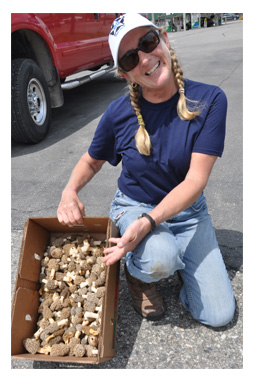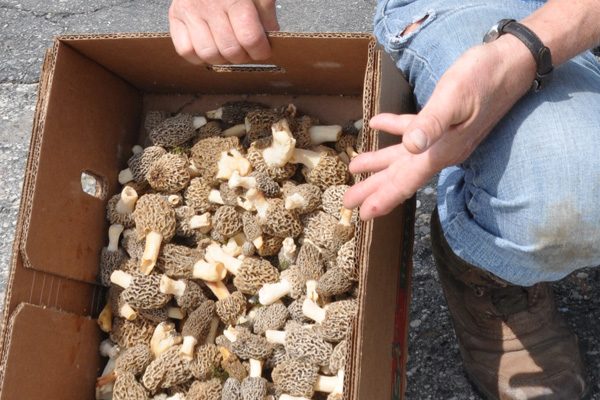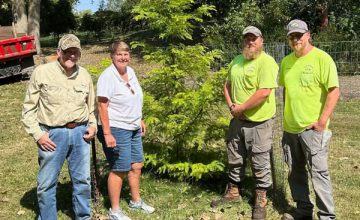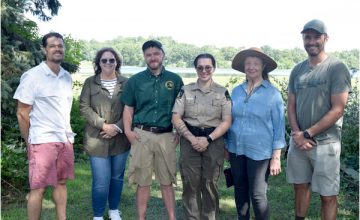
Health in the Hills
There is a fungus among us! May in Michigan means morel mushroom hunting season. Morels are a honeycomb-like mushroom prized by chefs for their nutty flavor, but they’re quite rare. It’s easy to get caught up in the excitement of finding one of these tasty delicacies, but remember that foraging for wild mushrooms requires a degree of caution.
Misidentifying poisonous mushrooms for edible varieties is a significant hazard to public health and safety. Of the 2,500 mushroom species in Michigan, only 60-100 are generally regarded as safe to eat. Beefsteak mushrooms, commonly known as false morels due to their similarities in appearance, contain a toxic agent called gyromitrin. False morels can cause symptoms ranging from headaches and nausea to jaundice and coma.
Due to the health risks, federal law requires that any person selling wild mushrooms must be an expert in their identification. Midwest American Mycological Information (MAMI) is a non-profit organization devoted to educating the public by providing access to accurate and up-to-date information on topics related to mushrooms. In collaboration with the Michigan Department of Agriculture and Rural Development, MAMI hosts a one-day training workshop for those wishing to become an approved expert mushroom identifier. After the workshop, participants must pass a test in order to be granted certification. Mushroom identification experts are able to legally harvest, broker, and sell wild mushrooms in the state of Michigan. Certification must be renewed every 5 years.
 In this photo, Lynn Mikulen-Kaidan shows off just some of the morel mushrooms she found in May of 2015.
In this photo, Lynn Mikulen-Kaidan shows off just some of the morel mushrooms she found in May of 2015.
It’s common to see people selling morels on Facebook and Craigslist, but you shouldn’t purchase mushrooms from just anyone. Check this list to ensure your seller has been certified by the state. If you’d rather hunt morels on your own, purchase a reputable mycology guidebook for your region and ask an experienced hunter to go with you the first few times. Most importantly, you must assume responsibility for your own health and safety. This includes studying how to identify mushroom species, but also being prepared for collecting them. Carry a compass, dress appropriately for the weather, bring water/snacks, and allow enough time to get out of wooded areas before dark.
If you do find or purchase morels, be sure to cook them (but save one! See below.) Uncooked morels have been known to cause an upset stomach. Most experts recommend soaking and rinsing them well to remove all dirt and insects, then frying them in butter until they’re cooked throughout. If it’s your first time trying a morel, eat just a bit and wait several hours to see how your body reacts. It’s never worth risking your health or life for the sake of a meal.
If you feel ill after eating any wild mushroom, call poison control (1-800-222-1222) or immediately report to the nearest emergency room. Be sure to bring the uncooked mushroom you set aside, as this can be life-saving by helping doctors identify the source of the poison and how to treat it.





